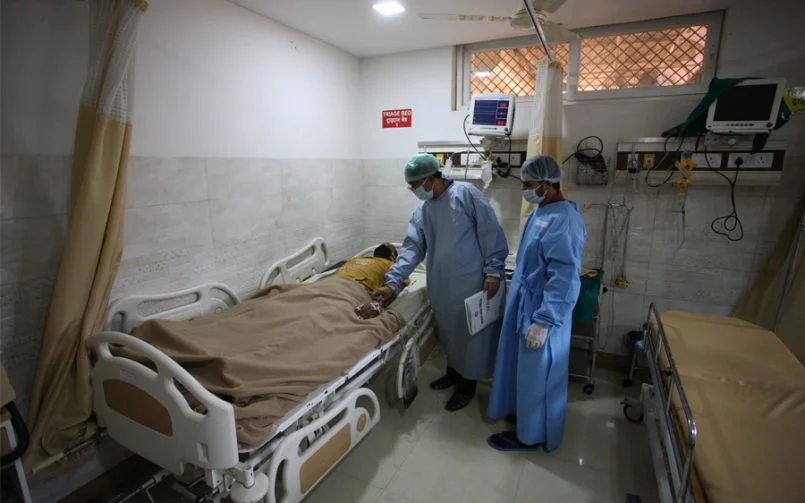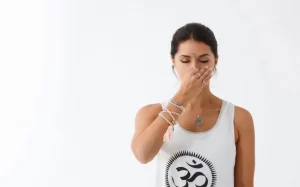After her shift ends at 6 pm at KJ Somaiya Hospital in Sion, Mumbai, Mini enters her two-room home on the fifth floor of a seven-storey building in Kharghar, on the outskirts of Mumbai, some 30 km from the hospital, with tentative and cautious steps. As she ensures that she doesn’t touch anything, her 15-year-old daughter watches from a distance; her mother has told her that they cannot hug each other for some days.
The 48-year-old nursing superintendent has set new rules in the house; she lives alone in a separate room and her routine has also changed. She doesn’t touch anything once she walks through the building gate; her husband is there to help, pressing the lift button to take her home. Mini straightaway heads for a shower and sanitises everything she carries from outside —her uniform, cap and scarf.
“Initially it was difficult for us to cope with this new lifestyle, but we don’t have any other option. Not hugging my daughter after returning from work was hard to digest,” shrugs Mini, whose responsibilities at work include delegating nurses to Covid-19 patients and making sure that the 90 nurses in her team are taking all the precautions as suggested.
KJ Somaiya is one of the many hospitals doubling up as isolation and quarantine centres for Covid-19 patients. At the time of writing, the hospital had over 20 patients who tested positive; one died because of coronavirus. Mini and her team have been at it for 15 days now. “Wearing personal protective equipment (PPE) and a mask for long hours is not easy. Plus it is getting hotter by the day.
My team comes crying to me with dribbles of sweat trickling down their faces. I see the exhaustion and pain in their eyes. But we don’t have an option. I keep giving them rotational shifts so that they’re not overloaded with work.”
Mini has her own moments of despair, something that she has learnt to hide when she performs her duties. “The entire team approaches me when they face any trouble; if I start crying in front of them, where will they go? On one particular day I was so stressed that I couldn’t understand what to do… I called up my mom and cried my heart out,” she says. That happened during the initial days of the pandemic when Covid-19 patients were new to the hospital staff.
“I have overcome all of it now and am getting stronger each day,” she adds.
As the number of deaths, new cases and those testing positive for Covid-19 burgeon by the day in Mumbai, hospitals are buckling under the virus assault. In mid-April, Mumbai Mirror reported that at least 15 hospitals, including Saifee, Wockhardt and Bhatia in Mumbai, had shut down after health staff contracted the virus.
Dr Jeenam Shah, a consultant pulmonologist who would practice at these three city hospitals, describes the tribulations of those at the frontline. “PPE is in shortage, so we have to use it judiciously. Working with the suit on and ensuring that you don’t touch your face is a task in itself,” he says.
What’s more, health workers point out that it becomes uncomfortable to move one’s face in the head mask that they have to wear. Those wearing spectacles have a bigger challenge when the glasses get foggy. “And, after wearing PPE, one cannot go to the washroom or eat; if you have to use the washroom, you have to discard everything,” adds Shah.
Source:
https://www.forbesindia.com/article/coronavirus/warriors-on-the-frontline/58929/1




